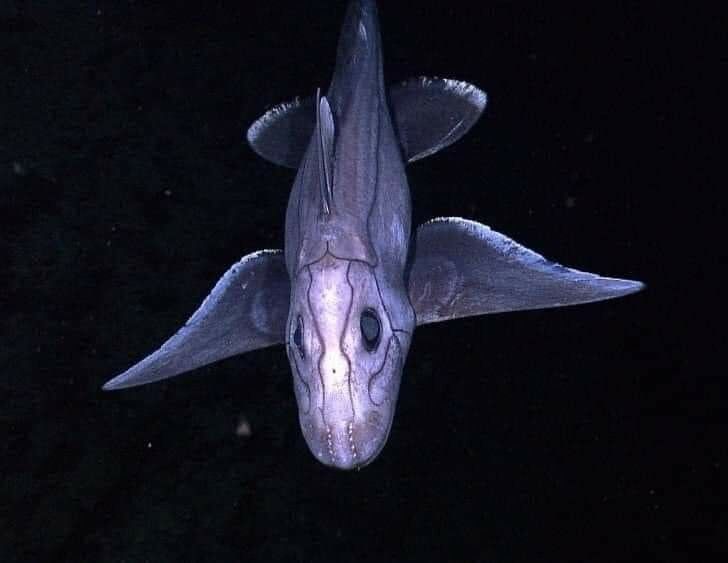Scientists spooked by ghost shark sighting off Thailand coast (video)

Scientists have been spooked by the ghoulish discovery of a ghost shark swimming off the Andaman coast of Thailand. Researchers revealed the ghost shark is a new species named Chimaera supapae. It boasts a formidable head, oversized eyes, and delicate, feather-like fins.
Chimaeras, commonly known as ghost sharks, belong to the family of cartilaginous fish, sharing kinship with sharks and rays. Live Science highlighted that these cartilaginous fish represent some of the oldest species still extant today.
The recently identified species falls under the category of shortnose chimaeras, as detailed by researchers in a paper published on March 6 in the journal Raffles Bulletin of Zoology. This paper illuminates the habitat of ghost sharks, dwelling in the lightless depths of the ocean where sunlight fails to penetrate, specifically below 1,640 feet along continental slopes and oceanic ridges.
Ghost sharks predominantly prey upon bottom-dwelling creatures such as crustaceans and mollusks, as reported by Live Science. Measuring up to 20 inches in length, Chimaera supapae boasts broad pectoral fins believed to aid in its locomotion across the seabed.
Of particular interest is the creature’s discovery location: off the Andaman coast of Thailand. However, it’s worth noting that the specimen was found deceased as part of a deep-sea survey project conducted in 2018.
David Ebert, lead author of the study and program director of the Pacific Shark Research Center at San Jose State University in California, stated that Chimaera are rare in this region of the world.
“There were only 53 known species of chimaera in the world. This makes 54.”
The revelation of Chimaera supapae is a source of excitement for scientists as it contributes to our understanding of the vast array of life dwelling in the depths of the ocean, said Ebert.
“Evolutionarily, these chimaeras are among some of the oldest lineages of fishes with the lineage going back 300-400 million years.
“The discovery of new species like this chimaera tells us how little we know about the marine environment and how much is still to be explored.”
Latest Thailand News
Follow The Thaiger on Google News:


























